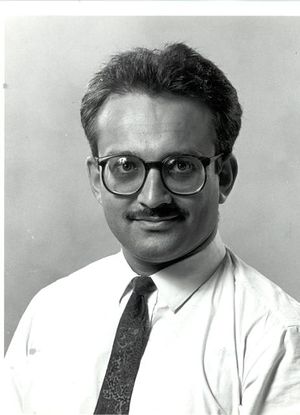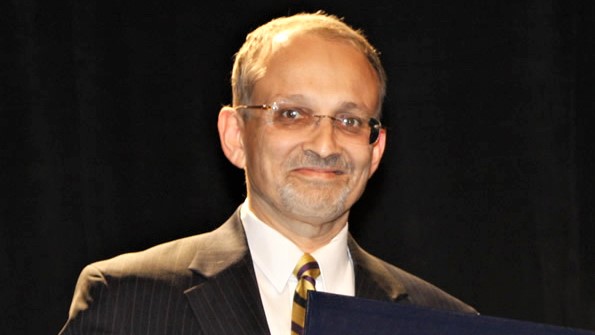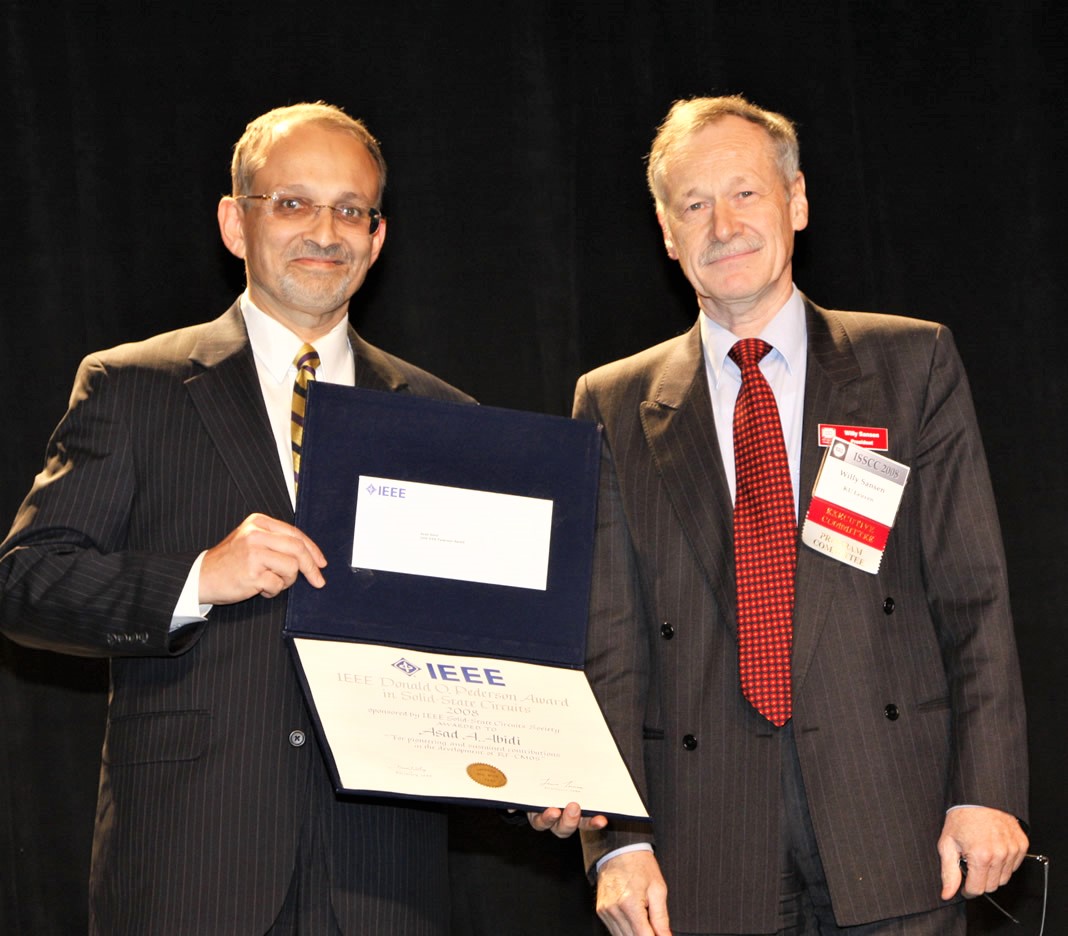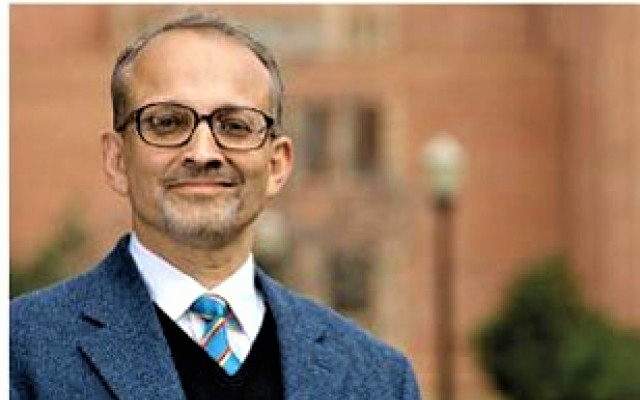Introduction:
Asad Ali Abidi was born on 12th July 1956. He is a Pakistani electrical designer who fills in as a tenured educator at the University of California, Los Angeles and, is the debut holder of the Abdus Salam Chair at LUMS. Brought up in Pakistan, Abidi got his B.S. from Imperial College London followed by an M.S. Ph.D from the University of California, Berkeley in 1981. He filled in as an electrical specialist with Bell Labs and in January 1985 joined UCLA as a tenured scholastic. In 2007, he left for a long-term vacation to fill in as an establishing senior member of the designing school at the Lahore University of Management Sciences (LUMS) and got back to Los Angeles in 2009. In 2017, he was named as the debut holder of the Abdus Salam Chair at LUMS [1].. Here, we discuss Asad Ali Abidi | An Engineer and Scientist of Pakistan.

| Basic Information | Asad Ali Abidi |
| Nationality | Pakistani American |
| Date of Birth | 12th July 1956. |
| Place of Birth | Peshawar, Khyber Pakhtunkhwa, Pakistan |
| Age | 64 years old |
| School/ College | Cadet College Hasan Abdal, Pakistan, Dudley College of Technology, UK (High school) |
| University | Imperial College, London University of California, Berkeley |
| Occupation | Scientist |
| Career | The University of California, Los Angeles (1985), Member of Technical Staff at Advanced LSI Development Laboratory (1981-1984), Visiting Faculty Researcher at Hewlett Packard Laboratories (1989), Program Secretary IEEE International Solid-State Circuits Conference (ISSCC) (1984-1990), General chairperson of Symposium on VLSI Circuits (1992), Secretary of IEEE Solid-State Circuits Council (1990-1991), Editor of IEEE Journal of Solid-State Circuits (1992-1995) |
| Famous for | RF CMOS, RF Circuit Modeling |
| Research | Electrical Engineering, Electronics Engineering |
| Awards | IEEE Donald O. Pederson Award in solid-state circuits (2008), IEEE Third Millennium medal, IEEE Donald G. Fink prize paper Award, Member of National Academy of Engineering |
Asad Ali Abidi, A Great Scholar, and Teacher:
Abidi is a prominent scholar and is an individual from the National Academy of Engineering and The World Academy of Sciences. He got the IEEE Donald O. Pederson Award in Solid-State Circuits in 2008 In 2015, UC, Berkeley remembered him as a recognized graduate for his commitments to the hypothesis and practice of simple and RF circuits [1].
Teacher Asad Ali Abidi, a recognized researcher of electrical design, will be the debut holder of the Abdus Salam Chair at the Lahore University of Management Sciences (LUMS), an announcement said on Wednesday. Teacher Abidi related to the University of California, Los Angeles (UCLA). The explanation which named him “a motivating educator of technical studies and designing”, said that Professor Abidi was popular for his pivotal advancements in single-chip radios. Electronic gadgets and circuits, ascribed to his examination, structure the premise of a considerable lot of the present cell phones [2].

Life and Education:
He got his B.Sc. degree (with top-notch praises) in electrical designing from the Imperial College, London, the U.K. in 1976. Later he went to the United States where he went to the University of California, Berkeley. He got his M. Sc. degrees in electrical designing in 1978 and a Ph.D in 1981 under the oversight of Robert Meyer. He is an IEEE Fellow and an individual from the United States National Academy of Engineering (NAE). He joined LUMS School of Science and Engineering as its first Dean and helped shape the beginning of this new institution. The school showed like the world’s driving specialized colleges, essentially MIT and Caltech, and required to deliver another age of researchers and designers, to help change the financial and specialized scene of Pakistan [2].
Academic Career:
Since 1985, Asad has held a situation at UCLA, where he is at present a full professor. From 1981 to 1984, he was with Bell Laboratories, Murray Hill, NJ, as a Member of Technical Staff at the Advanced LSI Development Laboratory. He was a Visiting Faculty Researcher at Hewlett Packard Laboratories in 1989. He is one of the main two Pakistani-inception individuals from the NAE. and perceived as ISSCC top ten authors. He is notable and has been credited for his examination of RF-CMOS circuits, which empowered the remote transformation in the late 1990s [2].
He filled in as the Program Secretary for the IEEE International Solid-State Circuits Conference (ISSCC) from 1984 to 1990 and was the General Chairperson of the Symposium on VLSI Circuits in 1992. He was the Secretary of the IEEE Solid-State Circuits Council from 1990 to 1991. From 1992 to 1995, he was the Editor of the IEEE Journal of Solid-State Circuits [2].
Family of Abid Ali:
Asad Abidi was born in 1957 to a structural specialist and a homemaker. His dad, Asghar Ali Abidi, was chosen, with his dear companion Ismail Gulgee, to make a trip to Cambridge, Massachusetts to go to Harvard University on a grant, where he thusly held a lectureship position. His dad before long got back to Pakistan to help plan the Mangla Dam (an “Abidi Guesthouse” actually remains in his honor). Asad grew up moving around a wide range of districts of Pakistan until he was at long last positioned in Cadet College, Hasan Abdal.
Move to England for Graduation:

At 16 years old, he was shipped off to England to live with his uncle. There, Asad went to a little polytechnic school where he befriended his educator. He took A-level intense training and wound up doing very well in his tests, making sure about him a situation in Imperial College, London, on the grant. Even though Asad was altogether more youthful than the entirety of his schoolmates, he figured out how to jump up to the highest point of his group and hence graduated with the most noteworthy conceivable honors [2].
At 19 years old, Asad ventured out to America to seek after Master’s and Doctoral investigations at the University of California, Berkeley, dismissing a grant offer from Stanford University. After getting his Ph.D, he was extended to an employment opportunity position at the Bell Laboratories in Murray Hill, New Jersey. At Bell Labs, Asad turned out to be old buddies with future Nobel Laureate George E. Smith [3].
Awards and recognitions [3]:
• 2009 Third World Academy of Sciences.
• 2008 UCLA HSSEAS Lockheed Martin Award for Excellence in Teaching
• 2008 IEEE Donald O. Pederson Award in Solid-State Circuits
“For pioneering and sustained contributions in the development of RF-CMOS”
• 2007 National Academy of Engineering
“For contributions to the development of integrated circuits for MOS RF communications”
• Top 10 contributors to the ISSCC in its 50-year history
• 2000 IEEE Third Millennium Medal
• 1998 Design Contest Award at the Design Automation Conference.
• 1997 ISSCC Jack Raper Outstanding Technology Directions Paper Award
• 1997 IEEE Donald G. Fink Prize Paper Award
• 1988 TRW Award for Innovative Teaching Postdoctoral Research Associate
Books by Asad Ali Abidi [3]:
• Analysis and design of IF and RF circuits for SDR receivers: Anti-aliasing Pre-filters, Accurate and Low-noise Quadrature LO Generation and Injection-locked Dividers
• The Designer’s Guide to High-Purity Oscillators (The Designer’s Guide Book Series)
• Integrated Circuits for Wireless Communications
• Effects of random & periodic excitations on relaxation oscillators (Memorandum)
• On the dynamics of Josephson junction circuits (Memorandum)
Asad Ali Abidi research articles [3]:
• Direct-conversion radio transceivers for digital communications.
• A filtering technique to lower LC oscillator phase noise
• Noise in RF CMOS mixers: A simple physical model
• A 900 MHz CMOS LC-oscillators with quadrature output
• Phase noise and jitter in CMOS ring oscillator
• Large suspended indicators on silicon and their use in 2-mu m CMOS RF amplifiers
• CMOS mixers and polyphase filters for large image rejection
• Physical processes of phase noise in differential LC oscillators
• RF CMOS oscillators with switched tuning
• The path to the software-defined radio receiver
• A 6 b 1.3Gsample/s A/D converter in 0.35-/spl mu/mCMOS.
• An 800 MHz-6-GHz software defines wireless receiver in 900-nm CMOS
• A 9 b 1.25 ps resolution coarse-fine time to digital converter in 900 nm CMOS that amplified a time residue
• A single-chip 900 MHz spread spectrum wireless trans-receiver in 1-/spl mu/m CMOS.I. Architecture and transmitter design.
• A 3-10 GHz low noise amplifier with wideband LC-Ladder matching network
• A 1 GHz CMOS RF front-end IC for a direct conversion wireless receiver
• High-frequency noise measurements on FET’S with small dimensions
• Flickers noise in CMOS transistors from subthreshold to strong inversions at various temperature
• RF CMOS comes of age
• Low power radio-frequency ICs for portable communication

References:
- peoplepilld. 29th October 2020; Available from: https://peoplepill.com/people/asad-abidi/
- tribune. 29th October 2020; Available from: https://tribune.com.pk/story/1292051/honouring-nobel-laureate-prof-asad-abidi-named-inaugural-holder-abdus-salam-chair
- enacademic. 29th October 2020; Available from: https://enacademic.com/dic.nsf/enwiki/9083493